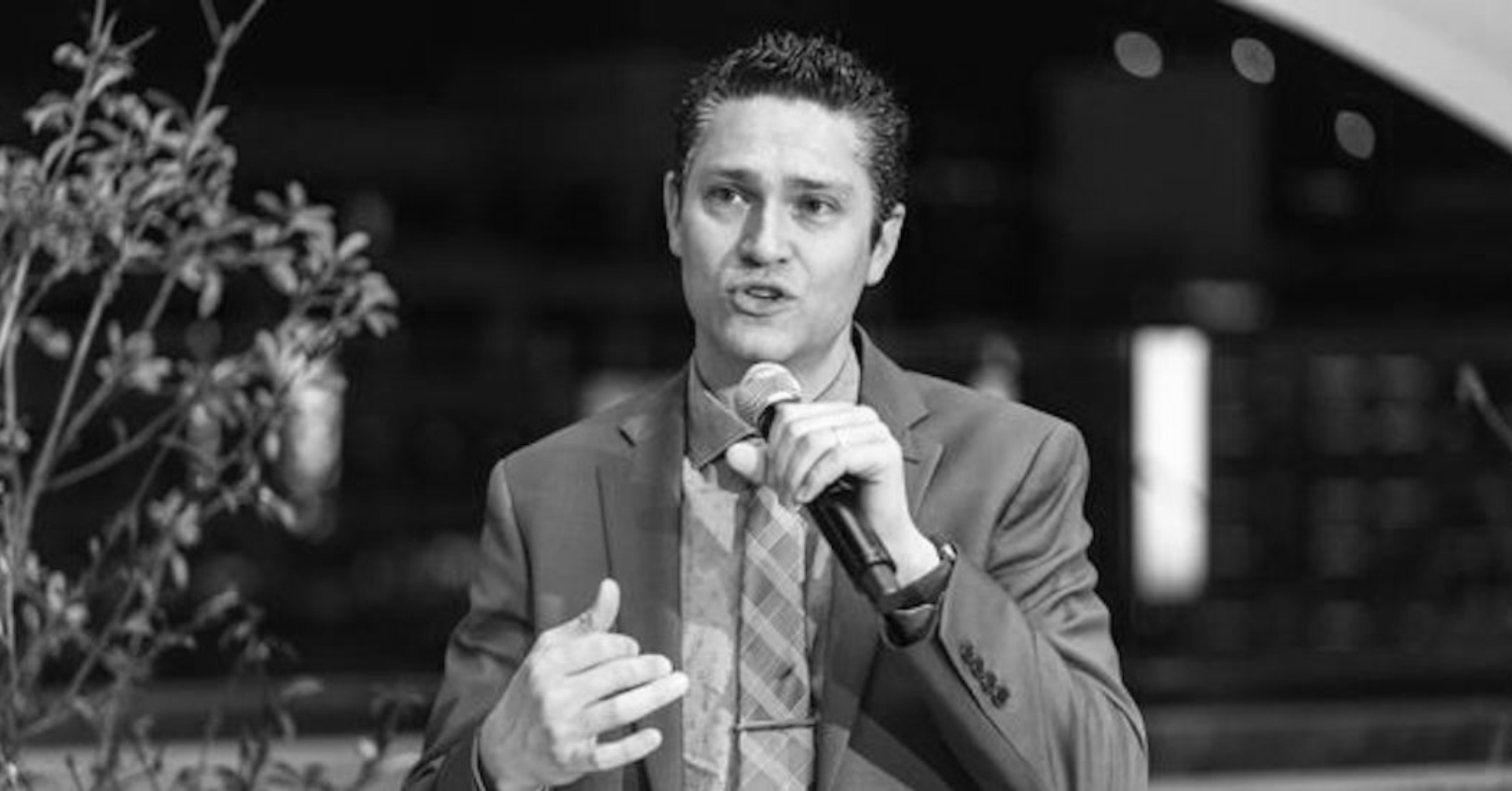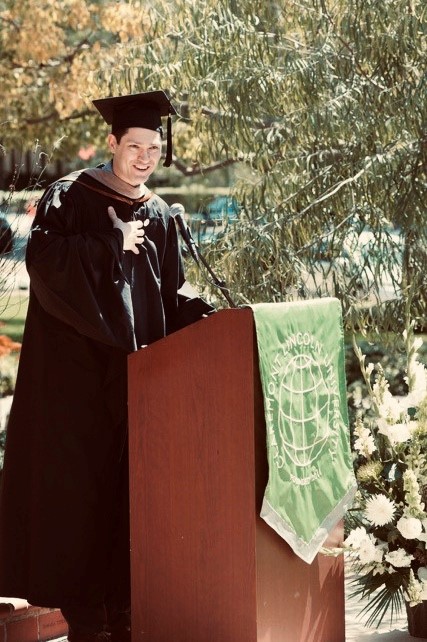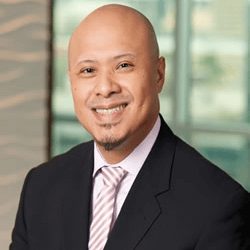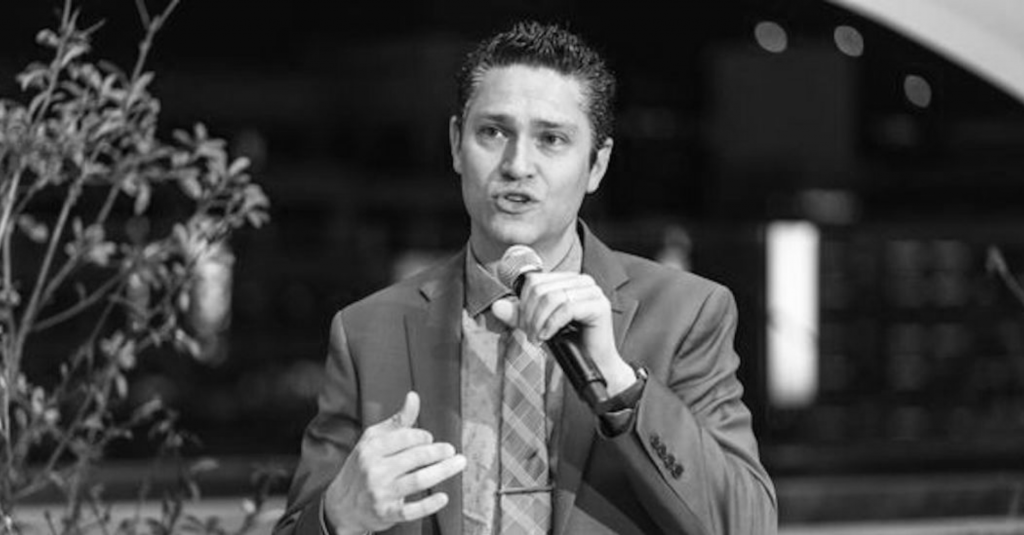
Dr. Joe Sallustio serves as the Vice President and Chief Operating Officer at Claremont Lincoln University. He has led a broad range of educational institutions including a regionally accredited non-profit university (online), a regionally accredited for-profit university (online), and a nationally accredited for-profit college (online/hybrid), giving him a unique and effective breadth of knowledge in on-ground and online higher education administration. With nearly two decades of experience in higher education operations, Joe has led teams in marketing, enrollment, finance, financial aid, student services, student affairs, human resources, accreditation/Title IV compliance, business-to-businesses relationships, and product strategy for on-ground/hybrid and online universities. Specifically, his extensive experience in scaling marketing and enrollment activities have driven the success of many of the institutions he has served.
Joe received his Ed.D. in Organizational Leadership from Northcentral University. He also holds a M.S. in Organizational Leadership (Strategic Human Resources Management) from Regis University and a B.S. in Speech Communications from the State University of New York College at Oneonta.
Please tell us how you got started in your leadership career in higher education?
My leadership career in higher education is a case of being in the right place at the right time. I was working for a career college that had five campuses across the U.S. with approximately 1500 students. It was early 2005 and I was asked to travel to one of our campuses in Virginia to help with a turnaround. The short trip turned into a three-month stint because I said “yes” to every opportunity. By mid-2005, both of the leaders of the enrollment department were promoted to other positions due to our college’s expansion. I had built up some equity by taking on challenging opportunities that no one else wanted to spearhead so I was given the chance to lead our growing admissions department, to which, of course, I said, “YES!” My career in higher education is truly ironic, as my mother reminds me when she tells me a story about my sophomore year of college. I had finished up all of my general education requirements and I needed to pick a major. As I looked through the pathways, my mom turned to me and said, “There are a lot of choices, what are you interested in?” I replied, “absolutely nothing.”
I’m now closing in on my 20th year of higher education leadership, and I have picked up Masters and Doctorate degrees along the way. Not bad for a kid not interested in anything.
What is your responsibility as COO at Claremont Lincoln University?
As the Chief Operating Officer / Executive Vice President, I work to advance the mission and vision of the university while achieving brand recognition, population growth and financial sustainability. I am responsible for executive oversight and participation in the successful system-wide operational performance of Marketing, Enrollment, Student Services, Financial Aid, Finance, Student Accounts, Strategic Partnerships and Technology. As of late, my focus has shifted to growing our strategic partnerships as we bring Socially Conscious Education® to organizational and community leaders through the Claremont Core® curriculum. The Claremont Core embeds four key skills throughout our programs in the areas of Mindfulness, Dialogue, Collaboration and Change.
How would you describe your leadership style and management principles for success?
I believe that each person within the organization is a partner on the path to success. I operate with a very transparent, empathetic and authentic style of leadership. In today’s world of social media and awareness, authenticity, in my opinion, is the most important leadership principle. In managing the business, I communicate with employees to support their work and ensure they have all the knowledge and technology they need to function effectively. Accountability is a very important consequence of our work but when the employees truly believe in their leadership, actively own the culture and feel the work they are doing is meaningful, positive results are realized from commitment and passion.
You have held leadership positions at for-profit and nonprofit institutions, what makes these academic environments different and what can they learn from each other?
I am actually thinking about writing a book on this topic. To say that the academic and operational environments from the for-profit to non-profit sectors are unique would be an understatement. As the for-profit sector has slimmed, many of the amazing folks from that sector have moved to non-profit institutions; so the differences in those environments have been reducing over time. Here is what I will say about this: my goal at Claremont Lincoln University has been to take the best practices from my for-profit experience and embed those practices within the non-profit setting. Data-driven decision-making, cultivation versus capture marketing messaging, rabid focus on student success and university-wide business knowledge are a few of the areas that I’ve pulled from to enhance our growth efforts at Claremont Lincoln University.
More Higher Ed thought leadership Series Interviews
Emad Rahim Interviews Dr. Mary Hawkins, President of Bellevue University
Emad Rahim Interviews Merodie A. Hancock, PhD President, Thomas Edison State University
What does Socially Conscious Education mean?
At CLU, we trademarked the term Socially Conscious Education which we believe helps to communicate the incredible impact of our Claremont Core curriculum. The key skills of Mindfulness, Dialogue, Collaboration and Change have never been more necessary for leaders as we deal with the perfect storm of social, financial and health challenges. Being socially aware, empathetic and responsive to organizational and community needs in an ethical way is what we teach at CLU.
Socially Conscious Education also means that, as an organization, we realize the responsibility we have to create the multiplier effect of positive social and organizational change through our graduate leader practitioners. Our curriculum was engineered for a world with diversity, equity and inclusion embedded in our home and work lives.
One of your biggest degree program at CLU is in Social Impact. What exactly if Social Impact?
The M.A. in Social Impact is a dynamic program that seeks to bring more innovation and more diversity, equity and inclusion to the nonprofit and entrepreneurial ecosystem. This degree program is designed for aspiring founders, emerging social entrepreneurs, nonprofit leaders and mission-driven changemakers. It is for anyone interested in turning their passion for changing the world into a concrete plan. What students can expect to gain are the tools to get their social change idea successfully off the ground and running.
How has the pandemic affected the operations at CLU?
CLU is fully online by design. All of our graduate degrees are delivered 100% online and have been since the university started. Though our students were disrupted at times in their personal lives related to the pandemic, the operations and educational delivery of CLU was not interrupted at all. Curriculum pedagogically designed for online learning is much different than remote learning, which many universities had to pivot to as the pandemic forced on-ground education to online delivery. The general public may look at the terms “online education” and “remote learning” as synonymous, but they are completely and intentionally different.

Are there any new initiatives happening at Claremont Lincoln University?
Thank you for this question. We have officially launched a new Master in Public Administration (MPA) degree program which will begin in January 2021. We are thrilled to be able to offer the Claremont Core curriculum embedded in a MPA program, which will become a signature degree for CLU through our partnership with the Lincoln Institute of Land Policy. The MPA is designed to equip students with the skills required to facilitate leadership in public policy, governance and resource stewardship, with an end-goal of achieving equitable, cross-sector solutions to complex societal problems.
We also launched a podcast in June of 2020 called “Leaders Who Learn”. Podcasts represent new media for colleges and universities, and I’ve had previous experience launching a podcast so timing was right. The Leaders Who Learn podcast highlights the dimensions of leadership urgently needed today, the collaboration necessary for leading well, and how to tap the leader within each of us. Interviews showcase ethical and humble leaders who listen, learn, and build a legacy of gratitude, service and transparency in their businesses and communities. We have been humbled by an incredible guest list that includes the Orange County Health Agency Director, the CEO of Logitech, the former Chief Ethics Officer at Airbnb, a women’s empowerment filmmaker, and many others.
What are your predictions for the future of higher ed?
The future of higher education is unknown at this point. So much of what happens in the future will be dictated by the tail of COVID-19, the frequency and effectiveness of the population becoming vaccinated, and for higher education, the elasticity of colleges and universities to manage costs effectively amidst enrollment declines. There are many individuals out there that have predicted many college and university closures. I think we will see some, but will probably see even more mergers and shared services affiliations. Here is what I see – institutions withing higher education have spent the last year, and will probably spend the first six months of 2021, trying to compete for student in the online marketing space. There are big players in this space, and it is more competitive than ever. It will take institutions another twelve to eighteen months to figure out whether they can compete for online students before we see those closures and mergers.
What’s the best career-related advice you’ve ever received?
It’s simple. When presented with opportunity, say yes!

Dr. Emad Rahim is an award-winning entrepreneur, educator, author, community leader and TEDx Speaker. He currently serve as the Endowed Entrepreneur-in-Residence at Oklahoma State University and teaches at the Jack Welch Management Institute in the Executive MBA program. He was recognized by the United Nations Foundation as a 2013 Empact100 Honoree for his social entrepreneurship work, received a Congressional Award for his community service and was the recipient of the Forty Under 40 Business Leadership Award sponsored by Syracuse University. His personal story was turned into a short documentary, “Against the Odds,” and featured in the Huffington Post and Forbes. He co-authored “Leading Through Diversity: Transforming Managers Into Effective Leaders” and “The 4-Tions: Your Guide to Developing Successful Job Search Strategies” and is a frequent contributor to the Refractive Thinker book series, CEO Magazine, TweakYourBiz and YFS Entrepreneurship Magazine. Fellow him on Twitter @DrEmadRahim










